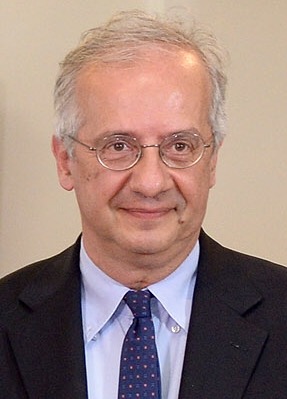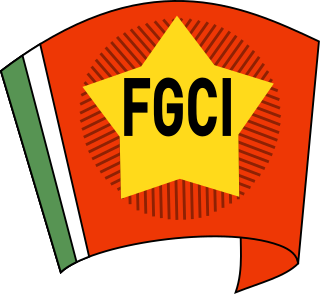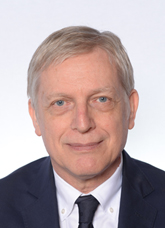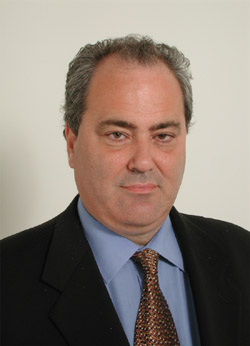
Enrico Berlinguer was an Italian politician and statesman. Considered the most popular leader of the Italian Communist Party (PCI), he led the PCI as the national secretary from 1972 until his death during a tense period in Italy's history, which was marked by the Years of Lead and social conflicts, such as the Hot Autumn of 1969–1970. Berlinguer was born into a middle-class family; his father was a socialist who became a deputy and later senator. After leading the party's youth wing in his hometown, he led the PCI's youth wing, the Italian Communist Youth Federation (FGCI), at the national level from 1949 to 1956. In 1968, he was elected to the country's Chamber of Deputies, and he became the leader of the PCI in 1972; he remained a deputy until his death in 1984. Under his leadership, the number of votes for the PCI peaked. The PCI's results in 1976 remain the highest for any Italian left-wing or centre-left party both in terms of votes and vote share, and the party's results in 1984, just after his death, remain the best result for an Italian left-wing party in European elections, and were toppled, in terms of vote share in a lower-turnout election, in the 2014 European Parliament election in Italy.

The Italian Communist Party was a communist and democratic socialist political party in Italy. It was founded in Livorno as the Communist Party of Italy on 21 January 1921, when it seceded from the Italian Socialist Party (PSI), under the leadership of Amadeo Bordiga, Antonio Gramsci, and Nicola Bombacci. Outlawed during the Italian fascist regime, the party continued to operate underground and played a major role in the Italian resistance movement. The party's peaceful and national road to socialism, or the Italian road to socialism, the realisation of the communist project through democracy, repudiating the use of violence and applying the Constitution of Italy in all its parts, a strategy inaugurated under Palmiro Togliatti but that some date back to Gramsci, would become the leitmotif of the party's history.

Union of Italian Communists (Marxist–Leninist) was a pro-Chinese communist group in Italy. The UCI(m-l) was founded in Rome on 4 October 1968. Its main organ was Servire il popolo. The main leaders of UCI(m-l) were Aldo Brandirali, Enzo Todeschini, Angelo Arvati and Enzo Lo Giudice.

Walter Veltroni is an Italian writer, film director, journalist, and politician. He served as the first leader of the Democratic Party within the Italian centre-left opposition until his resignation on 17 February 2009. He also served as mayor of Rome from June 2001 to February 2008.

The Party of Italian Communists was a communist party in Italy established in October 1998 by splinters from the Communist Refoundation Party (PRC). The split was led by Armando Cossutta, founder and early leader of the PRC, who opposed Fausto Bertinotti's leadership and, especially, his decision to withdraw support from Romano Prodi's first cabinet. In December 2014, the party was transformed into the Communist Party of Italy (PCd'I), which would later evolve into the new version of the Italian Communist Party (PCI).

Fausto Bertinotti is an Italian politician who led the Communist Refoundation Party from 1994 to 2006. On 29 April 2006, after the centre-left coalition's victory in the Italian general election, he was elected President of the Chamber of Deputies, a position he held until 2008.

Giusto Catania is an Italian politician and former Member of the European Parliament for North-West with the Partito della Rifondazione Comunista (PRC), part of the European Left and sat on the European Parliament's Committee on Civil Liberties, Justice and Home Affairs.

Fabrizio Cicchitto is an Italian politician, whose career has followed a trajectory from radical socialism to centre-right reformism.

The Young Communists is the youth wing of the Italian Communist Refoundation Party.

The Italian Communist Youth Federation was the youth wing of the Italian Communist Party, and the direct heir of the Federazione Giovanile Comunista d'Italia of the PCd'I.
The Genoa Social Forum is a coalition of movements, political parties and societies opposed to capitalist globalisation. It was created in 2000, a year before the scheduled 27th G8 summit in Genoa in 2001, and included several associations - and hundreds of smaller ones - largely but not solely from Italy. Although it made several requests to meet the institutional representatives, as a forerunner of a counter-forum, on June 24, 2001 they were met by police chief Gianni De Gennaro. Its national spokesperson was Vittorio Agnoletto, former MEP for the Communist Refoundation Party.

Massimo D'Alema is an Italian politician and journalist who was the 53rd prime minister of Italy from 1998 to 2000. He was Deputy Prime Minister of Italy and Italian Minister of Foreign Affairs from 2006 to 2008. D'Alema also served for a time as national secretary of the Democratic Party of the Left (PDS). Earlier in his career, D'Alema was a member of the Italian Communist Party (PCI) and was the first former Communist party member to become prime minister of a NATO country and the only former PCI prime minister of Italy. Due to his first name and for his dominant position in the left-wing coalitions during the Second Republic, he is referred to as Leader Maximo. He is also the author of several books.

The Federation of the Left was an electoral alliance of communist political parties in Italy. The coalition was the evolution of the Anticapitalist and Communist List.

Giovanni "Gianni" Cuperlo is an Italian politician, a member of the Italian Chamber of Deputies and former President of the Democratic Party.

Andrea Cozzolino is an Italian politician who is serving as a Member of the European Parliament (MEP) since 2009. Cozzolino began his political career in the 1970s with the Italian Communist Youth Federation (FGCI). He then joined the Italian Communist Party (PCI) and its legal successor parties, including the Democratic Party of the Left (PDS), the Democrats of the Left (DS), and the Democratic Party (PD). From 2005 to 2009, he was Assessor for Agriculture and Productive Activities in the Campania region.

The Brigate Garibaldi or Garibaldi Brigades were partisan units aligned with the Italian Communist Party active in the armed resistance against both German and Italian fascist forces during World War II.

Agostino Novella was an Italian trade unionist and communist politician.

Goffredo Bettini is an Italian politician. He is a founding member of the Democratic Party (PD). As mentor and closest advisor of PD's former secretary Nicola Zingaretti, Bettini is considered one of the most influential and powerful politician within the party.

The Network of Communists is a communist political movement network, founded in Bologna on 13 September 1998.

Pattuglia was a weekly communist satirical magazine published between 1948 and 1953 in Milan, Italy. It was official media outlet of the youth organization of the Italian Communist Party. Its subtitle was il corriere dei giovani.



















